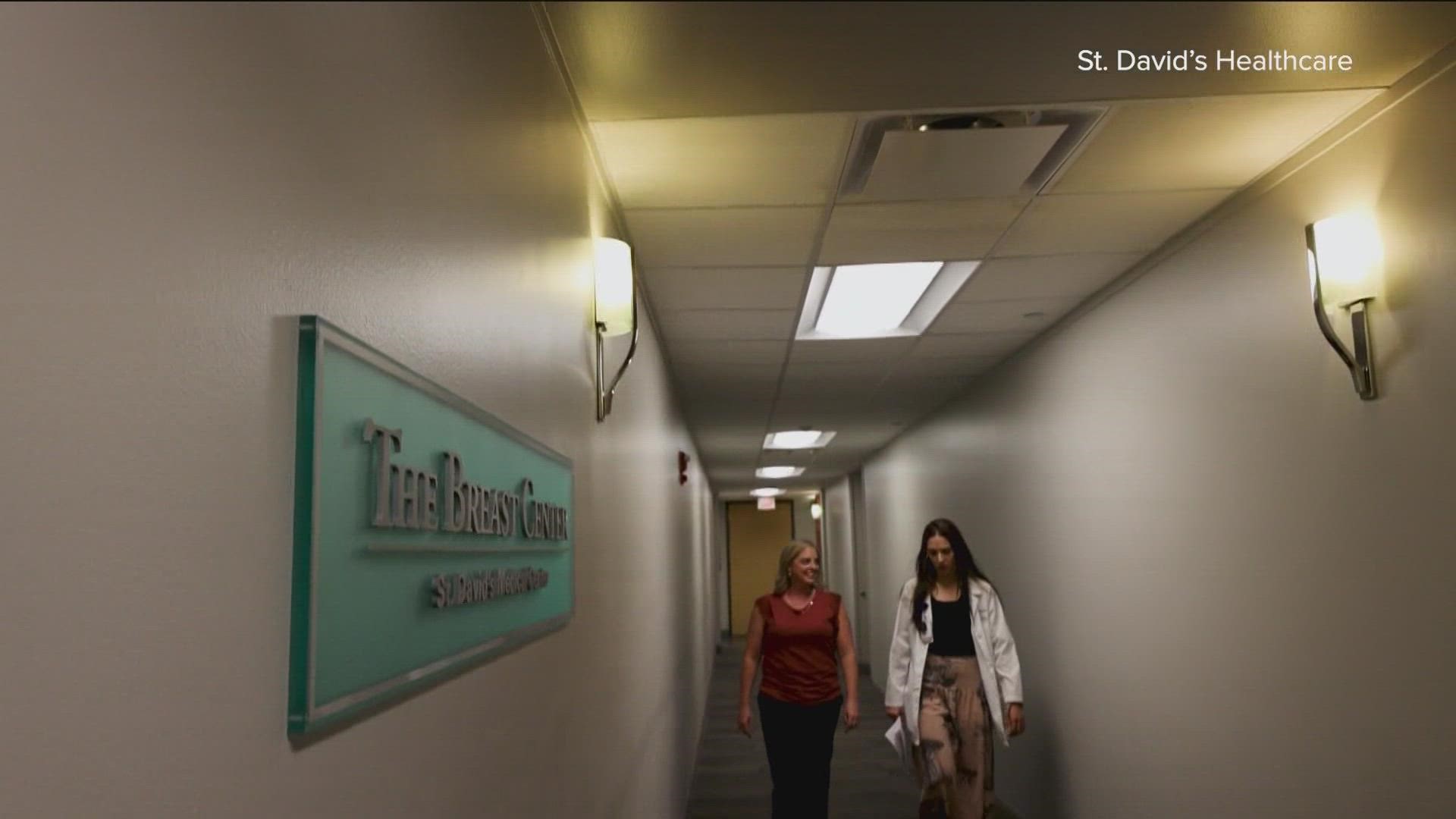AUSTIN, Texas — October is recognized as Breast Cancer Awareness Month, and it can be overwhelming for those that are diagnosed with breast cancer.
Many doctor appointments, tough decisions and treatments can sometimes leave patients feeling helpless.
Kristen Fall, a St. David's Healthcare employee, normally cares for others but soon found herself on the other side of care. Fall was diagnosed with lymphoma at ages 17 and 19. Because Fall knew there was a strong chance that she would develop breast cancer, she got a mammogram every six months for the last few years.
In March 2022, an MRI caught a pea-sized tumor in her breast. She had a double mastectomy and deep inferior epigastric perforators (DIEP) surgery, which is a reconstructive surgery that uses tissue from the belly, to reconstruct her breasts at St. David's Medical Center.
Fall was able to use the Nurse Navigator Program, available through St. David's HealthCare, which helped her explore her options.
"I'm a nurse, so when I got this breast cancer diagnosis, I felt like I had a good understanding of what would be needed, what appointments I would need and the different procedures," Fall said. "But I was wrong, and I learned that it's a lot more complicated breast cancer diagnosis and treatment than I realized."
St. David's offers the Nurse Navigator Program to help patients get through the process. Whether it's reminding patients of upcoming appointments or assisting with making tough decisions, nurses are by the patient's side every step of the way.
Fall was matched with her nurse navigator, Eve Rugarber, who's been in oncology for 11 years.
"We provide education, telling them, 'When this needs to go to your surgeon, this is how I would raise the question.' Providing national, vetted guidelines to help support them in their understanding. And then finally, by resources, those can be emotional, social, financial that comes in a lot of the time, helping them figure out how to utilize insurance funds and grants to help support the cost of care," Rugarber said.
Fall explained that throughout her cancer journey, Rugarber had a wealth of knowledge and would follow up any time she had an appointment to help keep her on track. Patients also have the control to determine how often they want to talk with their nurse navigator.
"We established boundaries of how we wanted to communicate and, usually on Monday mornings, we would see what I had for the week and how I'm feeling. Then if I had questions throughout the week, I could reach out to her and I felt comfortable doing that," Fall said.
All nurse navigators are required to get their OCN, which is an advanced certification in oncology. This allows nurses to provide additional clarification, go over test results and answer questions if patients may be confused about treatment when their doctor isn't available.
According to Rugarber, navigators typically end up with patients from to direct referrals.
"Any referrals we prioritize and we try to turn it around within a week, sometimes within days, that we're connected," Rugarber said.
When a patient is matched with a nurse navigator, they are able to help patients learn more about their cancer diagnosis and become a support system during difficult times.
"Your family and friends are there and they're supportive, but they don't understand. It's almost like another job, all of the things that you have to coordinate. So it's scary enough to get a cancer diagnosis and not know your prognosis and how scary the surgery is going to be or the treatment," Fall said. "So to have a nurse navigator take all of the pressure off of you or assist you with the business side is really helpful."
More information on cancer support through St. David's Healthcare and the Breast Cancer Resource Center can be found here.
PEOPLE ARE ALSO READING:

